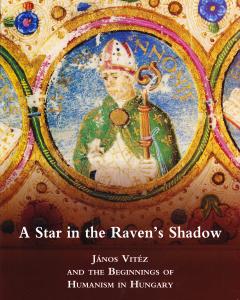
A Star in the Raven’s Shadow
A Star in the Raven’s Shadow
János Vitéz and the beginnings of humanism in Hungary
Exhibition organised by the National Széchényi Library, 14th March – 15th June 2008
Curator of the exhibition and editor of the catalogue: Ferenc Földesi
NSZL, Budapest, 2008, 251 pages
ISBN 978 963 200 554 6
János Vitéz is generally agreed by scholars to be the ‘father of Hungarian humanism’. He was a philologist, writer, diplomat, patron of the arts, book collector, high priest during the shift between the Middle Ages and the Renaissance. Without his life’s work, it is impossible to understand the beginning of what we might call the Hungarian High Renaissance, i.e. the classical humanist cultural orientation, book culture, courtly and scientific life of the Renaissance in the second half of the 15th century. This volume commemorates this man of exceptional talent and his library. By presenting his scattered library, Hungarian book history and humanism research has made up for its old debt, and thanks to the loans from abroad, such a large number of codices owned by Vitéz have been brought together for the first time.
The exceptional catalogue of the exhibition held in 2008 in the National Széchényi Library on the occasion of the Year of the Renaissance not only contains descriptions of the exhibited works of art and the library’s masterpieces, but also detailed studies by Anna Boreczky, Péter Ekler, Ferenc Földesi, István Horváth, Edit Madas and Edina Zsupán, as if the readers were on a guided tour.
The title of the exhibition – A Star in the Raven’s Shadow – was intended to reflect the image in Hungarian cultural history, and especially among the general public, that the modern, classical humanist culture of the second half of the 15th century was almost exclusively associated with the person of King Matthias. However, the figure to whom the scholarly consensus associates the beginnings of the 15th-century cultural shift, János Vitéz, with a star on his coat of arms, remained throughout and in every sense in the shadow of the King. This is why the most comprehensive presentation of Vitéz’s collection to date is so significant, and the rich material in this volume, presented in colour and quality reproductions, helps to rediscover this extraordinary personality. For in several crucial elements of Hungarian classical humanist culture, Vitéz must be identified as a source, a role model, a process initiator.
Shopping
Our publications are available in our bookshop, or can be ordered from the Publications Department of the NSZL using the contact details below: Főigazgatói Kabinet kiadványtára, Országos Széchényi Könyvtár, 1276 Budapest P.O. box 1205., phone: 06-1-23-23-506, e-mail: kiadvanytar@oszk.hu.




